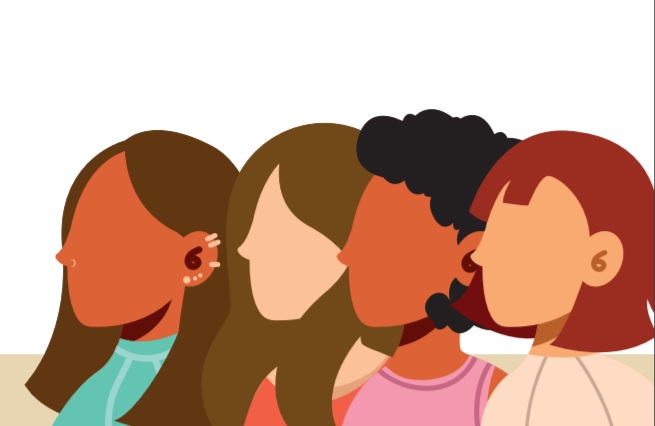The COMMCA Technical Secretariat and the Central American Secretariat for Social Integration (SISCA) held the web forum entitled ‘Violence against women in the framework of COVID-19, Impact and measures to address it in the Central American Integration System (SICA) region and in Latin America, dialogue with Europe’, with the support of the European Union programme EUROsociAL+.

The meeting was attended by six women ministers from the SICA member countries (El Salvador, Honduras, Nicaragua, Costa Rica, Panama, and the Dominican Republic) and the French Ministry of Women who exchanged experiences on the approach to the subject in both regions.
The web forum, which was structured around four panels, aimed to answer questions about what impact Covid-19 and lockdown measures have had on the situation of violence against women and which ones have been implemented by governments to address the situation of violence against women in the context of the emergency.
In the context of the pandemic caused by Covid-19, ‘Lockdown increases the risk of women, girls, and even older women who are already living in situations of domestic violence, as tensions in the lockdown increase. It must be ensured that hotlines and services dedicated to victims of domestic violence are provided and considered essential services to face the situation and provide security and well-being to girls and women, not only in the context of the pandemic, but also in the new normality and the future to come, implementing and strengthening the Axis of Security and Life Free of Violence, of the Regional Policy for Gender Equality and Equity (PRIEG/SICA)’, said Alfredo Suárez Mieses, Secretary General of SISCA.
For Françoise Roth, EUROsociAL+ expert, the concern comes not only from the lockdown measures but also from the impact of Covid-19 on the economic situation. There is particular concern regarding cyber violence, access to sexual and reproductive health services, as well as the situation of domestic workers who have lost their jobs and have been unable to leave the houses where they are working or being forced to work. There is violence in the public sphere, women who work in hospitals or in essential jobs and are rejected by their communities, the situation of women in prison or in detention centres, among others.
‘It can be difficult for women to raise the alarm in times of health crisis, especially if their partner is constantly at home. To face this, alerting methods have been adapted, so they can get help discreetly’, emphasised Michelle Dospital, representative of the European Union’s Nicaragua delegation.
The COMMCA Ministers, in observance of their mandate and as part of their response to the pandemic, ‘have developed guidelines for regional and national institutions to apply to guarantee women’s safety, lives, and universal rights’, said Alicia Rodríguez, COMMCA Technical Secretariat.
According to the minister of the National Institute for Women (INAM) of Honduras, Ana Madrid, in that country, violence against women was already a scourge before the pandemic. Honduras has promoted different strategies in various inter-institutional coordination frameworks, forming teams in the Ciudad Mujer Centres to provide psychological, social, and legal advice in a virtual manner.
For Janet Camilo, Minister of Women in the Dominican Republic, the first 5 SDGs, no poverty, zero hunger, good health and well-being, quality education, and gender equality, have been directly affected by Covid-19. The state’s challenge in the women’s agenda in that country is to continue supporting the women who are in informal employment with economic transfersaid.
In Panama, the National Institute for Women (INAMU) has extended the hotline for women to 24 hours a day, seven days a week, through the free phone line 82. ‘The impacts of the current health emergency and lockdown measures have created additional barriers for women in all public and private areas. These conditions have further deprived women of support resources to help them escape situations of violence such as family networks, friends, or aid organisations’, stressed Adorinda Ortega, director general and minister of the Panamanian National Institute of Women (INAMU).
Lorena Flores, Technical Director of the National Institute for Women of Costa Rica (INAMU), offered a call to action about what this crisis means in terms of the world of work for women, not only paid work but care work: ‘The vulnerability of poor women, unemployed women, and heads of households in vulnerable conditions is a concern, the effects they report to us are associated with the decrease in their own resources, the suspension of contracts from layoffs, business closures, and not receiving alimony’, she said.
‘The Government of Nicaragua continues to implement fundamental policies to guarantee the rights of women, through courts specialised in violence and the family, bringing communities closer to legal services, through criminal, local, and single courts, and we follow up and monitor situations of gender violence from the legal observatory’, said Jessica Padilla, Minister of Women of Nicaragua.
The Salvadoran Institute for the Development of Women (ISDEMU), from 1 March to 31 May 2020 has assisted 1,941 women, 1,055 through the outstanding personnel in the Comprehensive Care Centre, departmental offices, and ciudad mujer headquarters and 886 through the 126 call centres. ‘Women have exhausted the personal and psychological resources with which they have been defending themselves against abusive behaviour that violates their rights, a situation that has forced women to ask for help’, explained Marisol Briones, president of the Salvadoran Institute for the Development of Women.
The COMMCA and its Technical Secretariat are implementing initiatives such as investigations to find out what impact and effects Covid-19 is having on the lives of women to promote different kinds of measures to support women in the post-Covid-19 world, and at the same time it is executing support actions within the framework of the pandemic.



